Protein Science Young Investigator
Christopher Barnes | Stanford University |
|
Protein Science Young Investigator
Jamie Spangler | Johns Hopkins University |
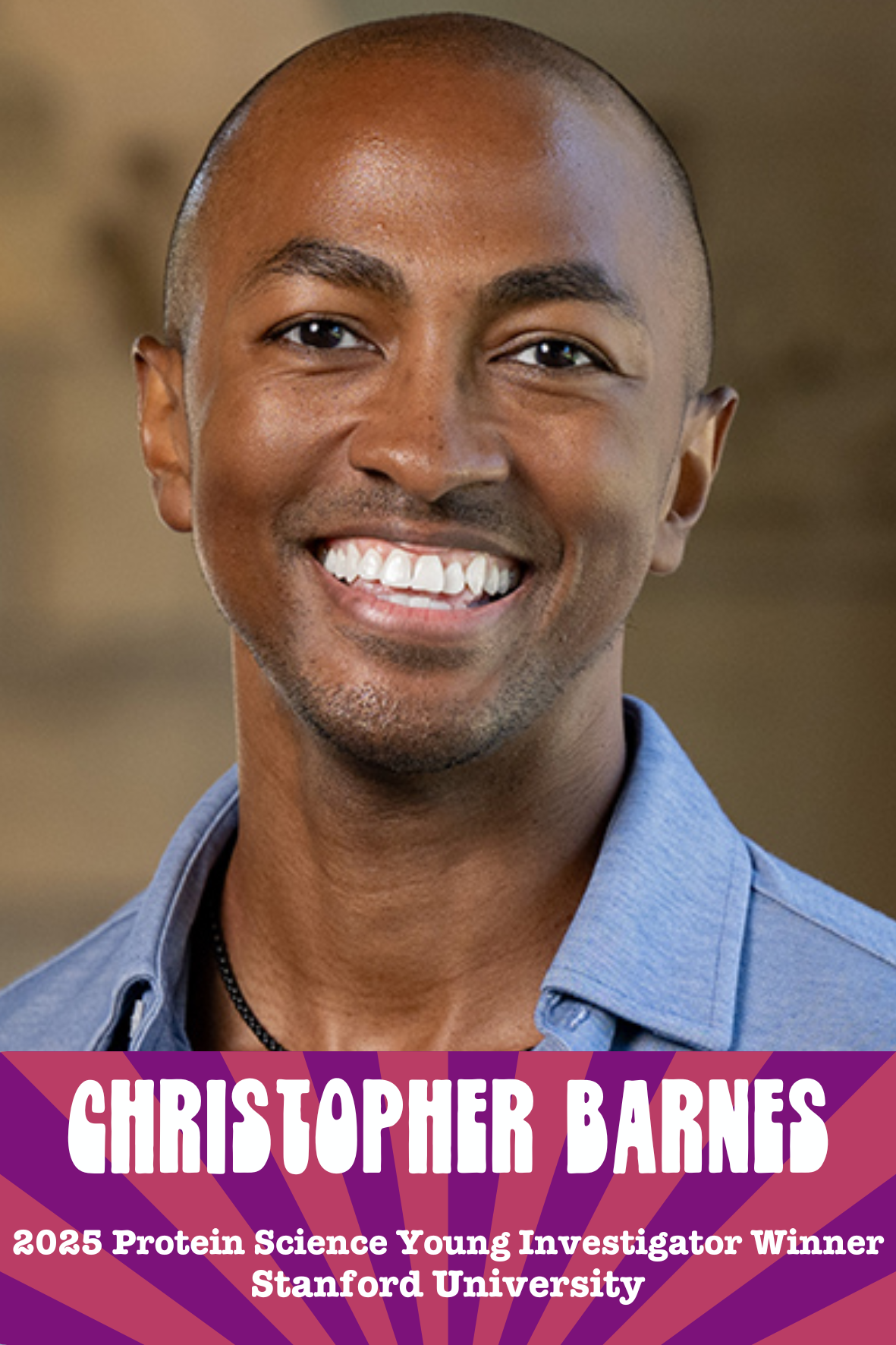 |
|
|
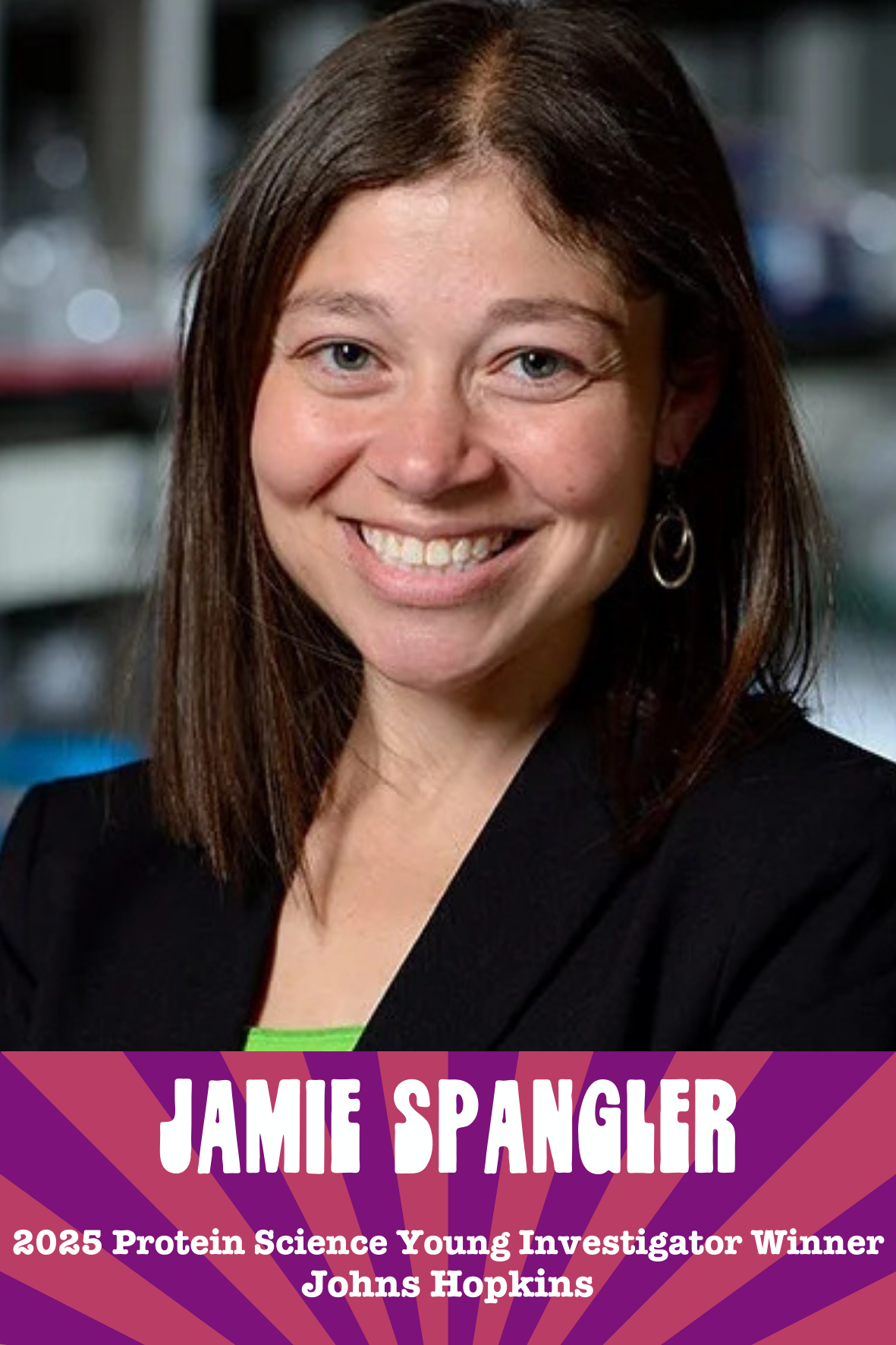 |
|
Previous Recipients
2024 - Gabriela Schlau-Cohen; 2023 - Polly Fordyce; 2022 - Nozomi Ando and Nicolas Fawzi; 2021 - Bruno Correia; 2020 - Mohammad Seyedsayamdost; 2019 - Gabriel Lander; 2018 - Brandon Ruotolo; 2017 - David Pagliarini; 2016 - Benjamin Garcia; 2015 - Nieng Yan; 2014 - M. Madan Babu; 2012 - Mei Hong and Tarun M. Kapoor; 2011 - Shu-ou Shan; 2013 - Feng Shao; 2010 - Charalampos Kalodimos; 2009 - Virginia Cornish; 2008 - Jamie H. Doudna Cate; 2007 - Benjamin Cravatt, III; 2006 - Vijay Pande; 2005 - Thomas Muir; 2004 - Erin O'Shea and Jonathan Weissman; 2003 - Yigong Shi; 2002 - Carolyn Bertozzi; 2001 - Kevan Shokat; 2000 - David Baker; 1999 - Jeffery Kelly; 1998 - Nikola Pavletich; 1997 - John Kuriyan; 1996 - Michael Summers; 1995 - Stuart Schreiber; 1994 - Peter Kim; 1993 - Ad Bax and Marius Clore; 1992 - Peter Schultz; 1991 - Carl Pabo; 1990 - Rachel Klevit; 1989 - William DeGrado |
|
The Protein Science Young Investigator Award, sponsored by Wiley, recognizes scientists within their first 8 years of an independent career at the time of nomination who have made an important contribution to the study of proteins. In 2025, there are two award recipients: Professor Christopher Barnes (Stanford University) and Professor Jamie Spangler (Johns Hopkins University).
Dr. Christopher Barnes is a trailblazer in bringing cutting-edge structural biology tools to bear on complex immunological problems to change how we understand and treat infectious diseases. His work on structures and mechanisms of antibody-antigen interactions has led to clinical breakthroughs and a universal blueprint for successful vaccines and antibody therapies. |
|
The Protein Science Young Investigator Award, sponsored by Wiley, recognizes scientists within their first 8 years of an independent career at the time of nomination who have made an important contribution to the study of proteins. In 2025, there are two award recipients: Professor Christopher Barnes (Stanford University) and Professor Jamie Spangler (Johns Hopkins University).
Dr. Jamie Spangler is a pioneering investigator in protein engineering who is defining the field of molecular immunoengineering, by designing new technologies to interrogate and manipulate the immune system at the level of proteins. She is developing and leveraging cutting-edge tools to elucidate molecular mechanisms underlying immune activity and engineer new categories of protein therapeutics.
|
|
Marie Maynard Daly
Yuh Min Chook | UT Southwestern Medical Center
|
|
Carl Brändén
James Fraser | University of California San Francisco |
 |
|
|
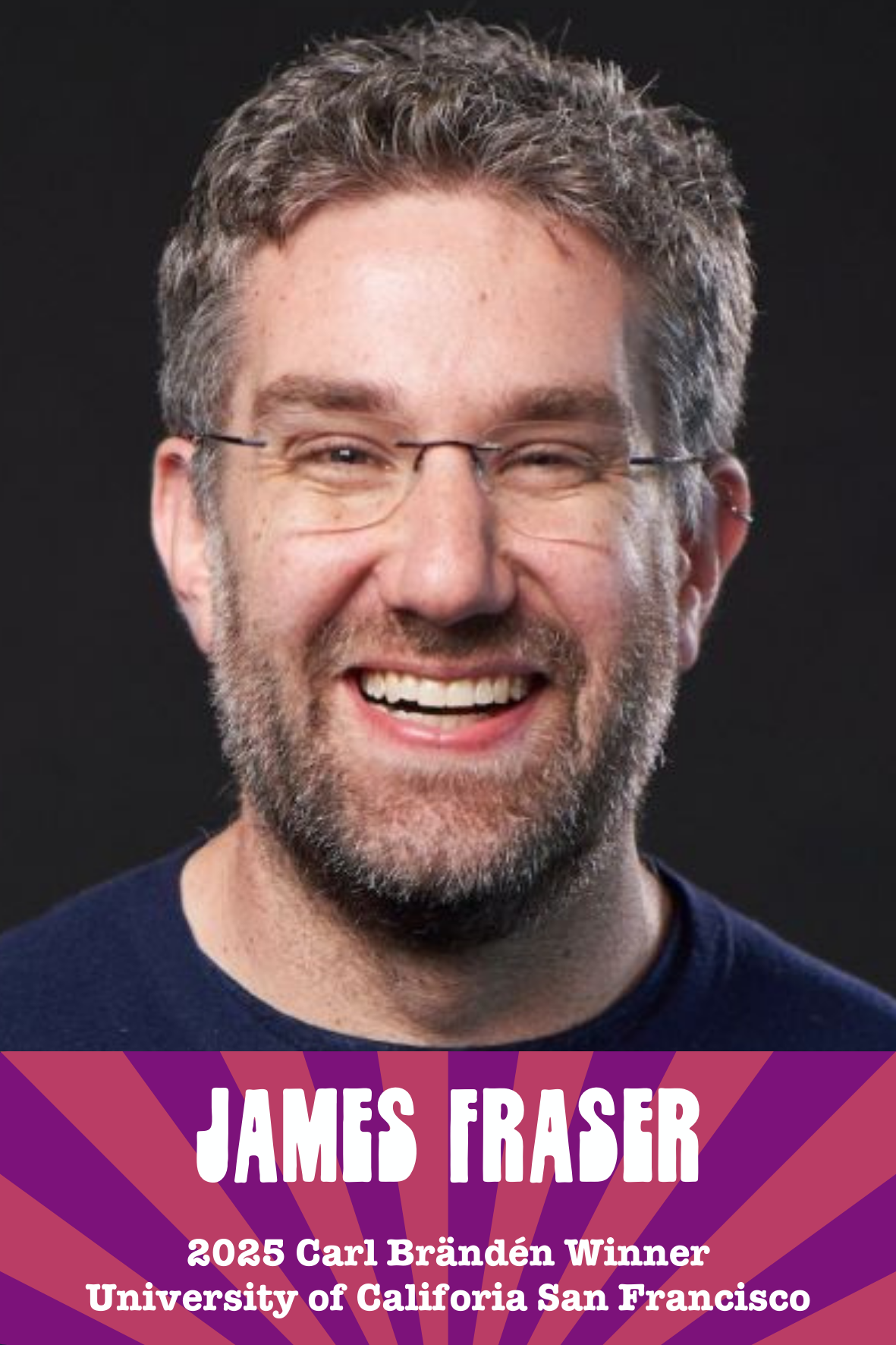 |
|
Previous Recipients
2024 - Alexandra Newton; 2023 - Renã Robinson |
|
Previous Recipients
2024 - Tamir Gonen; 2023 - Arthur Lesk; 2022 - David Goodsell; 2021 - Sheila Jaswal; 2020 - Karen Fleming; 2019 - Minoru Kanehisa; 2018 - Jane and Dave Richardson; 2017 - Billy Hudson; 2016 - Gary Pielak; 2015 - C. Robert Matthews; 2014 - Stephen White; 2013 - Sheena Radford; 2012 - Helen Berman; 2011 - Michael Summers; 2010 - Nobuhiro Go; 2009 - Bruce Alberts; 2008 - Howard Schachman; 2007 - Lubert Stryer |
| The Marie Maynard Daly Award, the newest award sponsored by The Protein Society, recognizes groundbreaking research at the interface between protein science and human health. The 2025 award winner is Professor Yuh Min Chook (UT Southwestern Medical Center). Dr. Chook is an international leader in biophysical studies of nucleo-cytoplasmic transport. Her studies of the fundamental biophysics and biochemistry of nucleo-cytoplasmic transport led to identification and ultimately FDA approval of a first-in-class drug for treatment of cancer. |
|
The Carl Brändén Award, sponsored by Rigaku Corporation, honors an outstanding protein scientist who has also made exceptional contributions in the areas of education and/or service to the field. The 2025 award winner is Professor James Fraser (University of California, San Francisco). Dr. Fraser established room temperature X-ray data collection techniques and ensemble modeling methods to study, engineer, and inhibit proteins. His contributions span research, education and service, including through collaborative project-based learning and advocacy for increased accessibility in publishing. |
Emil Thomas Kaiser
Brian Kuhlman | University of North Carolina Chapel Hill |
|
Dorothy Crowfoot Hodgkin
Andy LiWang | University of California Merced |
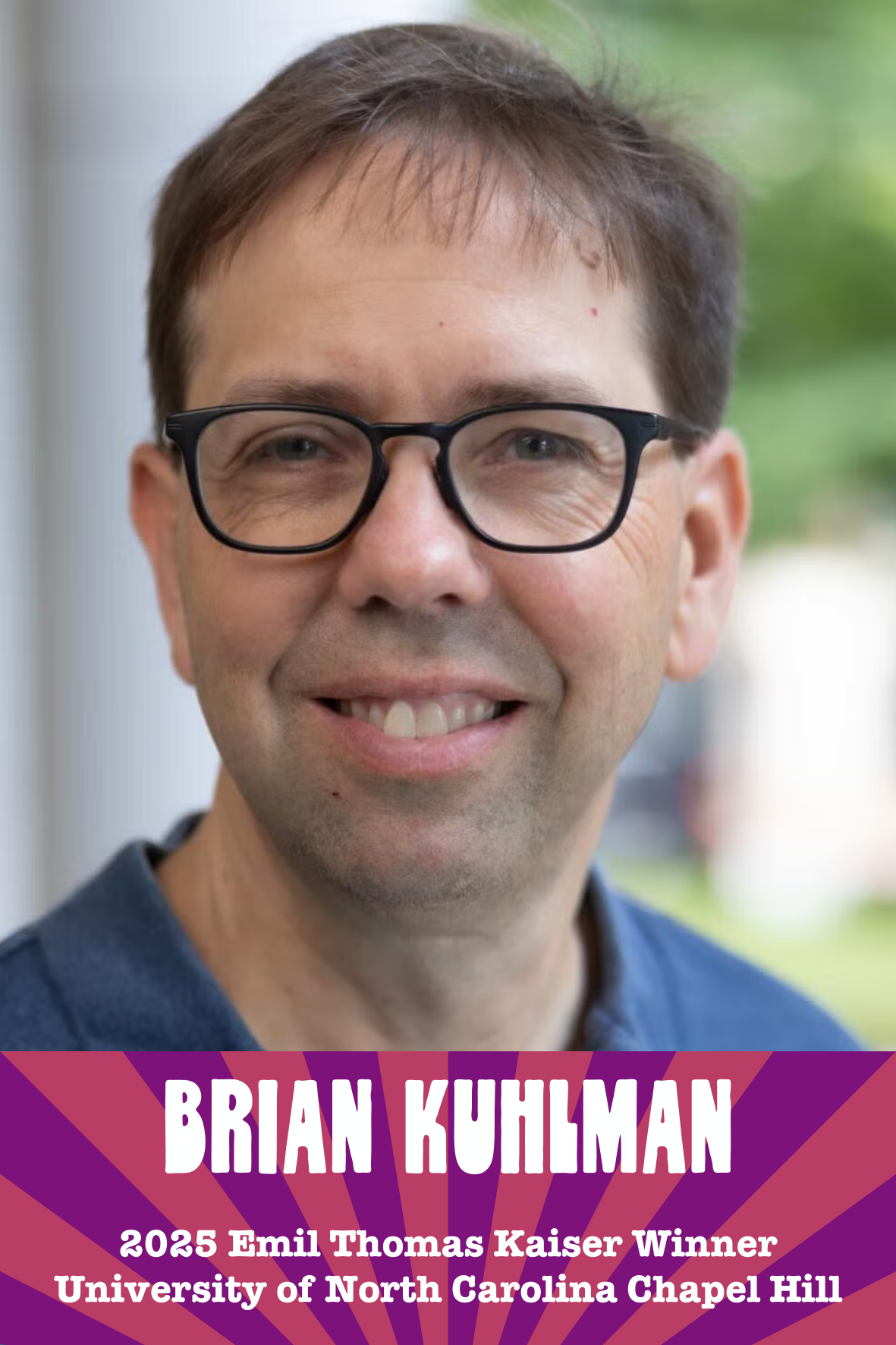 |
|
|
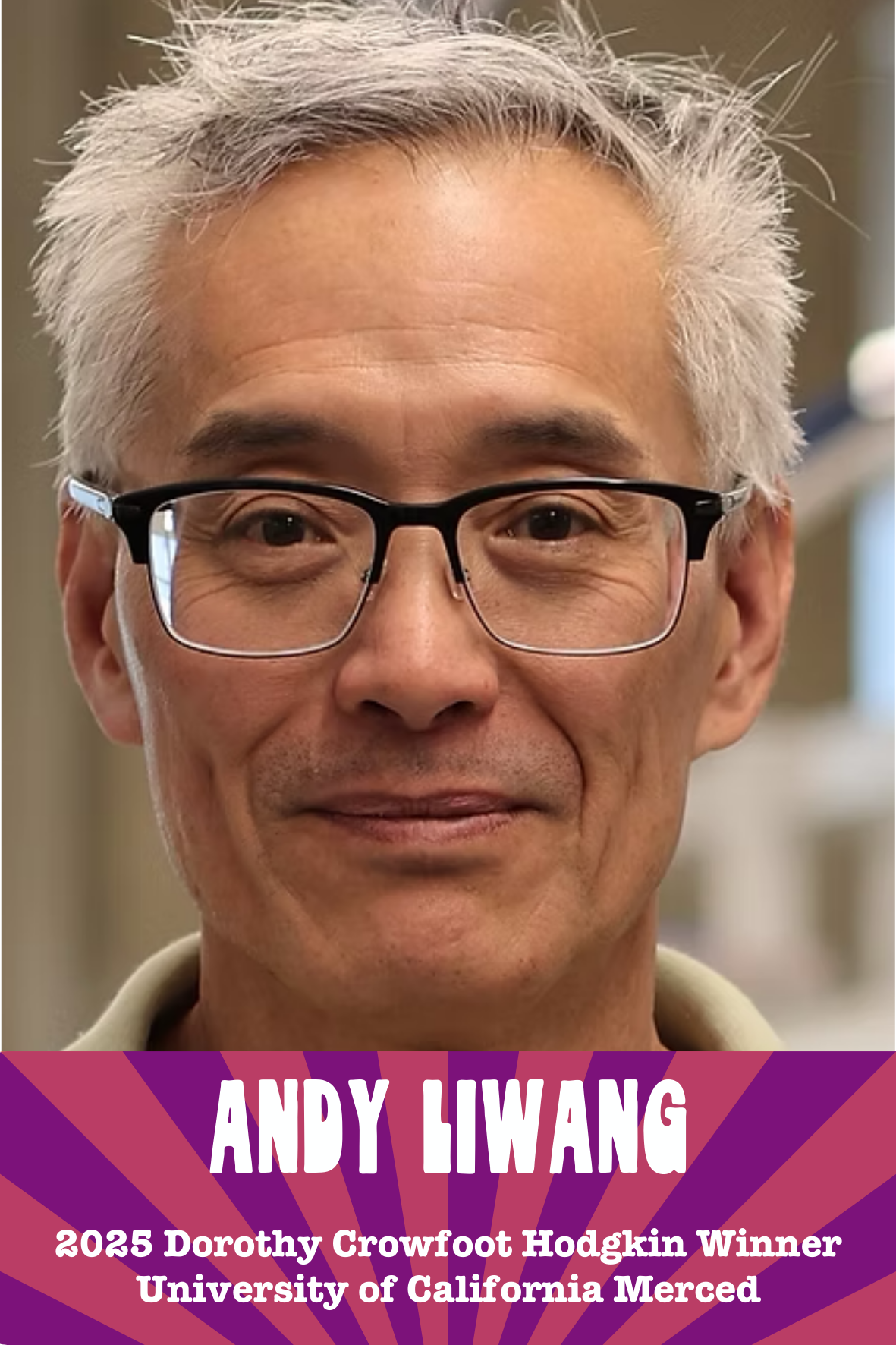 |
|
Previous Recipients
2024 - David Craik; 2023 - Jason Gestwicki; 2022 - Phillip Kukura; 2021 - Lei Wang; 2020 - Shuguang Zhang; 2019 - Shahriar Mobashery; 2018 - Michael Rosen; 2017- Thomas Muir; 2016 - Charles Craik; 2015 - Anna Mapp; 2014 - Carol Fierke; 2013 - Wilfred van der Donk; 2012 - No Award Given This Year; 2011 - Jeffery Kelly; 2010 - Suzanne Walker; 2009 - Donald Hilvert; 2008 - JoAnne Stubbe; 2007 - Michael Marletta; 2006 - Barbara Imperiali
Previous recipients, sponsored by SynPep Corporation, include:
2005 - Ronald Raines; 2004 - Homme Hellinga; 2003 - Michael Hecht; 2002 - Steve Kent |
|
Previous Recipients
2024 - Margaret Sunde; 2023 - Patricia Clark; 2022 - Sun Hur; 2021 - Janet Smith; 2020 - Catherine Drennan; 2019 - Hao Wu; 2018 - Susan Marqusee; 2017 - Juli Feigon and Manajit Hayer-Hartl; 2016 - Rachel Klevit; 2015 - Eva Nogales; 2014 - Judith Frydman; 2013 - Christopher Hill and Cynthia Wolberger; 2012 - Mark Lemmon; 2011 - Brenda Schulman and Wei Yang; 2010 - Lila Gierasch; 2009 - Janet Thornton; 2008 - Douglas Rees; 2007 - Leemor Joshua-Tor |
| The Emil Thomas Kaiser Award, sponsored by generous individual contributions, recognizes a recent, highly-significant contribution to the application of chemistry in the study of proteins. The 2025 award winner is Professor Brian Kuhlman (University of North Carolina at Chapel Hill). Dr. Kuhlman is a pioneer in protein structural modeling and de novo protein design. He created the design module in Rosetta and described the first applications to making novel proteins. Further recent contributions include applications of deep learning to not only protein design and structure prediction, but also to predicting stability and the energetics of amino acid substitutions in proteins. |
|
The Dorothy Crowfoot Hodgkin Award, sponsored by Rigaku Corporation, is granted in recognition of exceptional contributions in protein science that profoundly influence our understanding of biology. The 2025 award winner is Professor Andy LiWang (University of California, Merced). Dr LiWang is an exceptional scientist and champion of biochemistry in shedding light on the mechanisms that underlie circadian biology. His elegant and rigorous work has led to a near atomic-level understanding of the cyanobacterial circadian clock, the most ancient biological timekeeping system that we know of. He has figured out how proteins – and hence cells – can tell time. |
Hans Neurath
Antonina Roll-Mecak | NINDS/National Institutes of Health |
|
Stein & Moore
Timothy Springer | Harvard University |
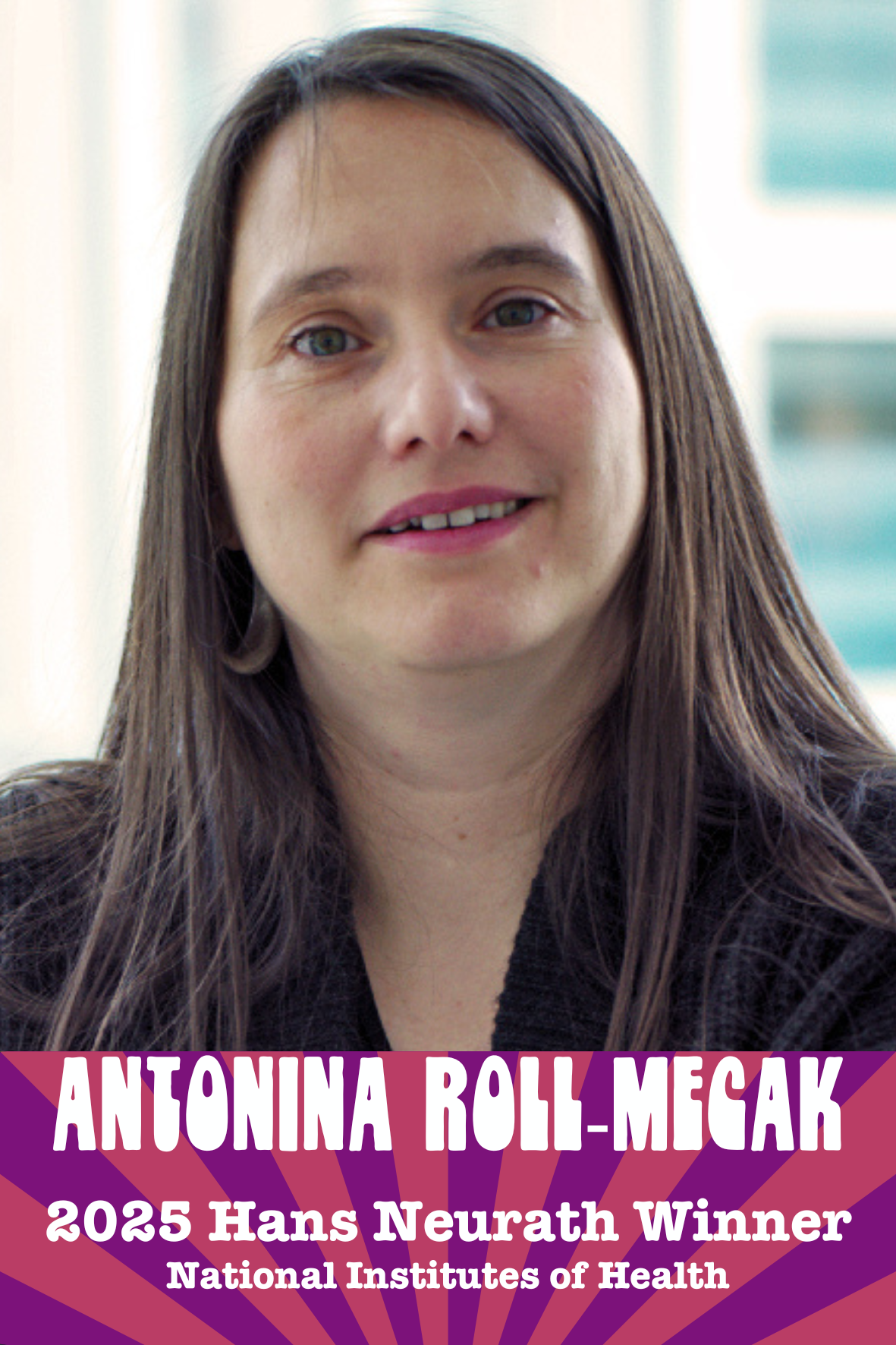 |
|
|
 |
|
Previous Recipients
2024 - David Cortez; 2023 - Elena Conti; 2022 - Squire Booker; 2021 - Toshiya Endo and Amy Rosenzweig; 2020 - Martin Gruebele; 2019 - Dave Thirumalai; 2018 - David Baker; 2017 - Kazuhiro Nagata; 2016 - H. Eric Xu; 2015 - Marina Rodnina; 2014 - James Hurley; 2013 - Jennifer Doudna and Chuck Sanders; 2012 - Charles Brooks; 2011 - Johannes Buchner; 2010 - Wendell Lim; 2009 - William Eaton; 2008 - Robert Stroud; 2007 - Robert Sauer; 2006 - Christopher Dobson; 2005 - Roderick MacKinnon; 2004 - Carlos Bustamante; 2003 - James Wells; 2002 - Ad Bax; 2001 - Arthur Horwich; 2000 - Janet Thornton; 1999 - Peter Kim; 1998 - Ken Dill |
|
Previous Recipients
2024 - Jeff Kelly; 2023 - Kevin Gardner; 2022 - Daniel Herschlag; 2021 - David Agard; 2020 - Jim Bowie; 2019 - Dame Carol Robinson; 2018 - Raymond Stevens; 2017 - John Kuriyan; 2016 - Jane Clarke; 2015 - William DeGrado; 2014 - Nikolaus Pfanner; 2013 - Robert T. Sauer; 2012 - No Award Given This Year; 2011 - Gerhard Wagner; 2010 - Peter Wright; 2009 - Peter Walter; 2008 - Susan Lindquist; 2007 - Paul Schimmel; 2006 - Arthur Horwich & F. Ulrich Hartl; 2005 - Avram Hershko & Alexander Varshavsky; 2004 - Wolfgang Baumeister; 2003 - Chris Dobson; 2002 - Paul Sigler; 2001 - Alan Fersht; 2000 - Brian Matthews; 1999 - Mo Cleland; 1998 - David Davies; 1997 - Mildred Cohn; 1996 - David Eisenberg; 1995 - Harold Scheraga; 1994 - Michael Rossman; 1993 - Walter Kauzmann; 1992 - Robert Baldwin; 1991 - Russell Doolittle; 1990 - Kurt Wuthrich; 1989 - Hans Neurath; 1988 - Fred Richards; 1987 - Emil Smith |
| The Hans Neurath Award, sponsored by the Hans Neurath Foundation, honors individuals who have made a recent contribution of exceptional merit to basic protein research. The 2025 award winner is Dr. Antonina Roll Mecak (National Institute of Neurological Disorders and Stroke/National Institutes of Health). Dr. Roll-Mecak’s work focuses on microtubules, highly- -dynamic non-covalent protein polymers that support life in all eukaryotic cells. Dr. Roll-Mecak has made fundamental contributions to our understanding of their dynamic properties through her pioneering work on the tubulin code, and through her discovery of microtubule nanodamage and repair catalyzed by severing enzymes. |
|
The Stein & Moore Award, sponsored by The Protein Society and with support from Wiley, is named for Nobel laureates Dr. William Stein and Dr. Stanford Moore. The award recognizes eminent leaders in protein science who have made sustained, high-impact research contributions to the field. The 2025 recipient is Professor Timothy Springer (Harvard Medical School). Dr. Springer was the first to discover that T-cell antigen-specific responses require cell-recognition receptors. His fundamental research has also paved the way to developing first therapeutics directed to cell-recognition molecules – an LFA-3 ectodomain-Fc fusion (Amevive), an LFA-1 antibody (Raptiva) for psoriasis, and an integrin α4β7 antibody (Entyvio) for ulcerative colitis. |
Christian B. Anfinsen
Jan Steyaert | Vrije Universiteit Brussel |
|
|
 |
|
|
|
|
Previous Recipients
2024 - Neil Kelleher; 2023 - Mei Hong; 2022 - Jin Zhang; 2021 - Petra Fromme; 2020 - Stephen Sligar; 2019 - Anthony Kossiakoff; 2018 - Yifan Cheng; 2017 - Lewis Kay; 2016 - Andreas Pluckthun; 2015 - Sachdev Sidhu; 2014 - Robert Tycko; 2013 - Tom Alber; 2012 - Barry Honig; 2011 - Wayne Bolen; 2010 - Yoshinori Fujiyoshi; 2009 - Wayne Hubbell; 2008 - Carol Robinson;2007 - Carl Frieden; 2006 - John R. Yates, III; 2005 - Matthias Mann; 2004 - Meir Wilchek; 2003 - Ada Yonath; 2002 - Roger Tsien; 2001 - Martin Karplus; 2000 - Stephen Benkovic; 1999 - Alan Fersht; 1998 - James Wells; 1997 - Wayne Hendrickson; 1996 - Donald Hunt |
|
|
|
| The Christian B. Anfinsen Award, sponsored by The Protein Society, recognizes technological achievement or significant methodological advances in the field of protein science. The 2025 award winner is Professor Jan Steyaert (Vrije Universiteit Brussel and VIB). Dr. Steyaert is a leading scientist in the field of nanobody technology. His pioneering contributions to the application of nanobodies as scaffolds to lock dynamic proteins into defined functional conformations has allowed the elucidation of the structure and working mechanisms of highly significant proteins such as G protein coupled receptors (GPCRs). |
|
|
|
| |
|
|
|










